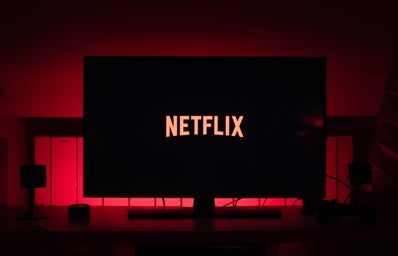Having just finished watching Netflix’s long awaited film, The King directed by David Michôd, I am filled with many thoughts that surely I will be unable to properly and thoroughly express. Taking little inspiration from Shakespeare’s Henry V play, the film begins depicting English warfare with the Scots, foreshadowing the vileness felt by men after successful battles. Following Hal (played by Timothée Chalamet), the heir to the English throne, the film establishes the future King drunkenly living with his friend John Falstaff (played by Joel Edgerton) noteably yet, wiser and more thoughtful than his mad father and ignorant brother. Seen to never care for succeeding his father’s throne, King Henry IV, nor his father caring for his succession neither, Hal lives in a drunken blaze while his mad father leaves the English kingdom in chaos. Upon his father’s death as well his brother Thomas’s, Hal is crowned King Henry V. Living with a counsel of untrustworthy men surrounded by his father’s own doings and taking of kingdoms, Hal is hurled into a world of megalomaniacs who encourage their ‘holy’ tactics of warfare as the only manner of execution for Hal’s desired peace and unity.
The first half of the film illustrates such scenes of Hal’s ruling, detailing the French as England’s new enemy given an assassin attempted to kill King Henry V. Having to take immediate action and governed by men of ‘wise’ rulings, Hal has to make Kingly sacrifices for the sake of not revealing England as weak, a talk of speech much common throughout the film yet problematic in Hal’s eyes. These acts include having his own cousin’s head cut off and ordering war on France given its mocking of England. Conveying the hardships and angles of the monarchy through the actor’s astray gazes, stern expressions, and coarse speech brought by Chalamet and Edgerton, none will find glamorization or envy within the film for such a life. This leads the film to the Battle of Agincourt, supposedly King Henry’s V most famous victory during his nine year reign over England. Within these battle scenes are visceral acts of violence and plot, embodiements of filth and entanglement and feelings of claustrophobia, fear and shock. Arguably the most riveting scene in the whole film, young Hal’s speech, that exhibits Chalamet between the divide of man and King, solider and ruler, citizen and Knight demanding his army to link themselves, merging as one for the whole of England. Following scenes of warfare prove this unrecognizable separation. Within this scene and too one of the few times in the battle that you see such separation lies when Hal’s friend, John Falstaff seeking refuge in the sea of bodies. He is honored in the film and recognized by Hal to be of great respect not because of his success in battles, as victory is unfilling nor long-lasting, but because of his capability to see beyond the madness of murder and bloodshed, feeling the vileness one has after war, even if sucessful. Audiences can witness this within Henry as well when he joins the battle, a character fueled by anger for the Dauphin’s (played by Robert Pattinson) stupidity and arrogance and the coming death of his men. Observed almost entirely in a grayish hue of clumped mud and blood, young Henry emerges from the ground like a wild but bewildered beast with an expression I cannot begin to label but decipher and recongized; it left me shaken. The last fifteen or so minutes tell of England’s victory in the battle, and them returning home to England where Henry has to make to decision of marrying the young French princess to settle things between the two kingdoms. Upon learning that his own men he loosely respected had forged the war between France and England, Henry outright kills one of the conspirators.
Emcompassed with a coming-to-age narrative and a wavering beam of morality, the film builds to nothingness by its end; and this is effective. For audiences unfamiliar with King Henry V, the film contains only the subtle plot-twists toward its end with its massive, claustrophobia and anxiety-ridden battle. Many may be left unsatisfied. But for film and history lovers like myself, I am taken aback by the blunt and provocative nature of the film. Like many other talented and well-performed historical films and shows, The King arouses anger, fury, confusion, empathy through its lens and actor’s performances. It leaves you stuck in a period 500 years earlier, muted and bewittled by our pasts. The film’s ending dramatically enhances the established juxtaposition of father and son ruling their kingdoms. Its color palette and timeless-sounding soundtrack amplify its historical and moral references. An ending of braggadocio and fantastical detail would have completely eradicated Hal’s persona and desire for unity, honest and truly. With an end echoing the chanting of “All hail King Henry” while Hal holds hands in mutual agreement between his future Queen and her honestly that he can no longer find between his own peoples, it leaves me backtracking to John Falstaff’s telling “a king has no friends”; especially none, long lasting as with peace, whether validated or falsified. Bright titles of the film, THE KING, rise and its audience knows of the ambiguity and as Catherine (played by Lily-Rose Depp) says, the illegitimacy of the monoarchy and the actions of any man being a paradox. Please check out The King on Netflix today!


